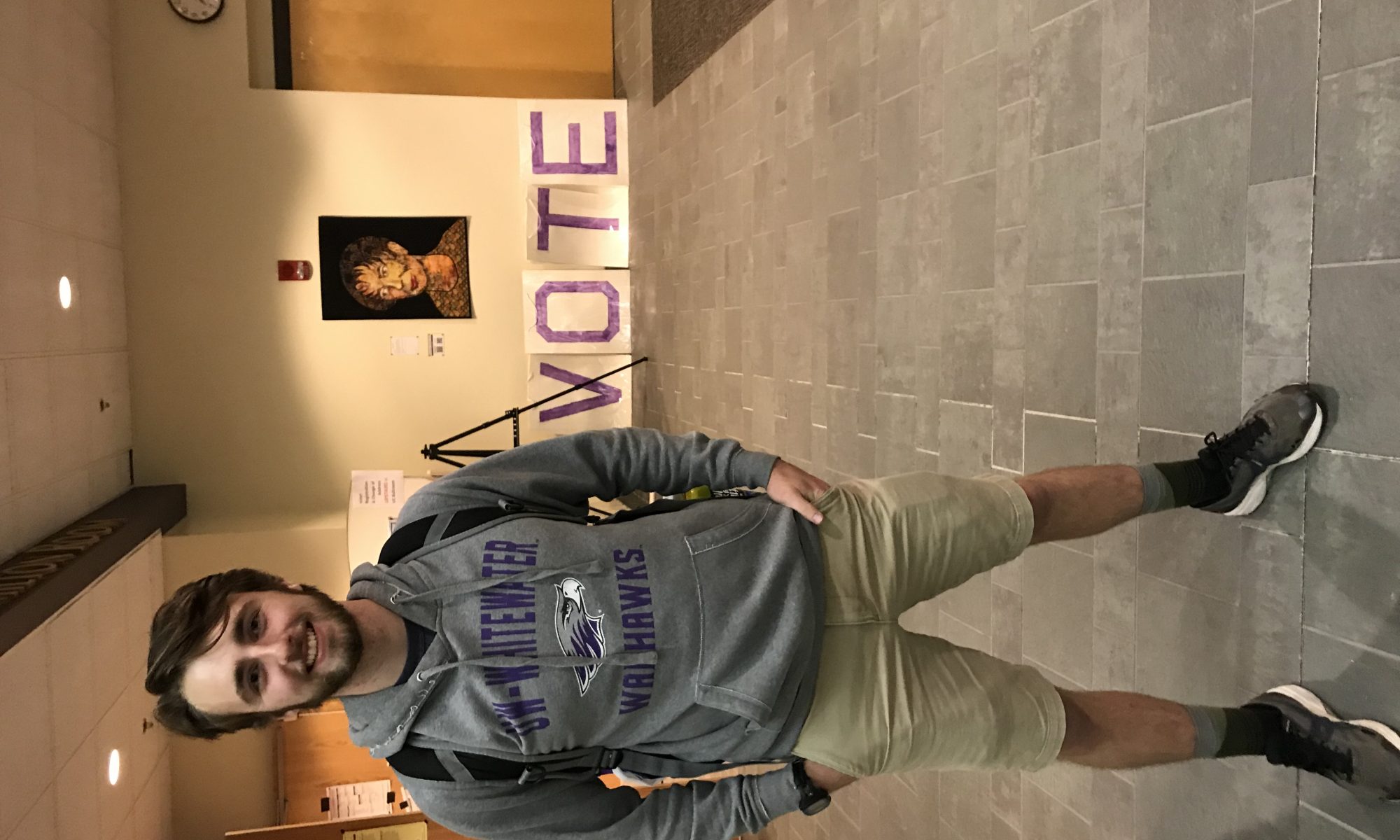WHITEWATER, WI
Before a collection of absentee ballots were accounted for and Democratic candidate Tony Evers rode a so-called “Blue Wave” to victory in the Wisconsin 2018 gubernatorial election, students at the University of Wisconsin – Whitewater kept their eyes glues to their phones and TV screens to watch the results unfold.
Some students gathered in Timothy J. Hyland Hall in room 1302 to participate in a watch party hosted by the UW-Whitewater College Democrats. When the winning vote was called at 8:03 p.m. for U.S. Senator Tammy Baldwin, a Democratic incumbent, several students rose from their seats and cheered as the room erupted with thunderous applause.
Other students were just leaving the polls in the University Center’s Hamilton Room, which closed at 8 p.m.
“It’s a huge issue getting students out to vote,” said junior Megan Martin, chairwoman of the UW-Whitewater College Democrats. “A lot of students I’ve talked to early-voted or absentee voted. There was a huge turnout in early voting this year.”
Senior Isabel Guerrero voted in her second-ever election experience. She said there was no irregular draw to the polls, other than to exercise her right.
The waiting line wasn’t too bad for Isabel, whose voting ward had the shorter of two lines.
“Towards the end, I know they get busy, just ’cause there’s fewer workers,” Guerrero said.
But for sophomore Jack Bolog, the line to enter the polls was much longer.
He encountered “unfortunate odds” of being in the line for Wards 1-9 and persons with last names beginning with letters A through L.
But, he said, “I think that’s outside of their [the poll workers] control.”
“I think it’d be cool to see an independent party win,” Bolog said of his hopes for election results. “I voted for Maggie Turnbull [for governor] because she’s big into upholding the environment and being a good person, and I also like those ideas.”
Bolog said he decided to vote around 7 p.m., just one hour before the polls closed, because a friend teased him into going.
“I didn’t want to be a terrible American, I didn’t want to be an adequate American,” Bolog said. “I’ll settle on being a subpar American.”
Bolog was voter No. 1,077. Guerrero was No. 1,074.
Last year, UW-Whitewater had approximately 12,000 students enrolled who are of legal voting age and citizenship status, according to a 2017 report. Those numbers remain somewhat consistent with this year, with only a slight decrease in student enrollment reported in September.
Junior Casey Seltrecht said it was “pretty easy” for him to register and vote Tuesday. The process took him all of a half-hour.
He also decided to vote about an hour before the polls because “this really, really cute girl told me I should go vote, so I did.”
It was his first time voting.
Seltrecht said he’s usually “very informed” on elections issues, and he didn’t feel his vote was cast without sufficient thought put into candidates’ positions.
“I feel like I would want to see Tony Evers win,” he said, correctly guessing the outcome of the gubernatorial race. “I don’t hate Scott Walker, but it’d just time for somebody new.”
Junior Darius Sanders voted for the first time Tuesday. He tried voting in the 2016 presidential election in Milwaukee, but was unable to do so because he went to the wrong polling place for his address at the time.
He felt inclined to vote this time around because “being black in America, I’m afraid, and if there’s anything I can do to be less afraid, I think voting is the best way to do that. African Americans’ voices don’t always get heard.”
Sanders said he voted mostly Democratic this election, but he feels even split on party affiliation.
“I just want an actual, honest politician that has a plan that makes sense,” Sanders said. “People’s politics really come from what makes them most comfortable. The super poor always gets the brunt of the stick. … the disbarment of the middle class is a threat to the economy.”

